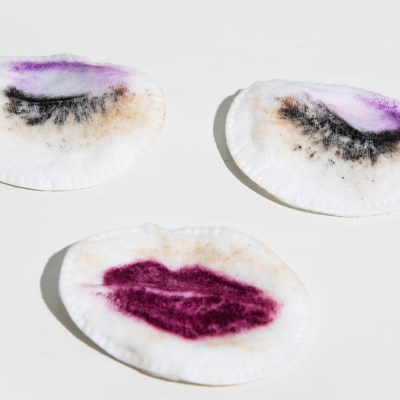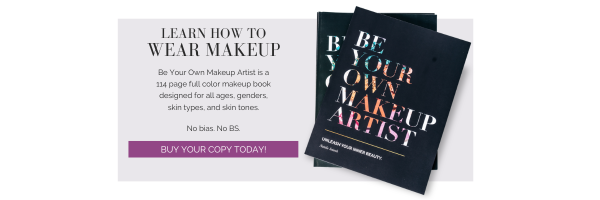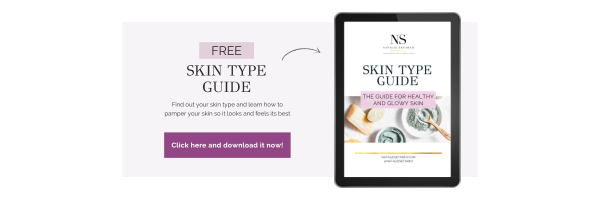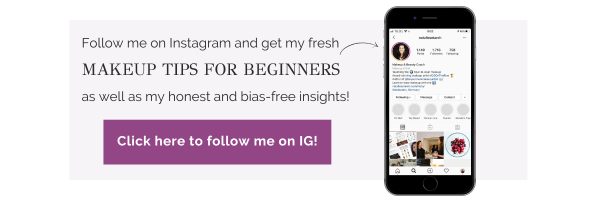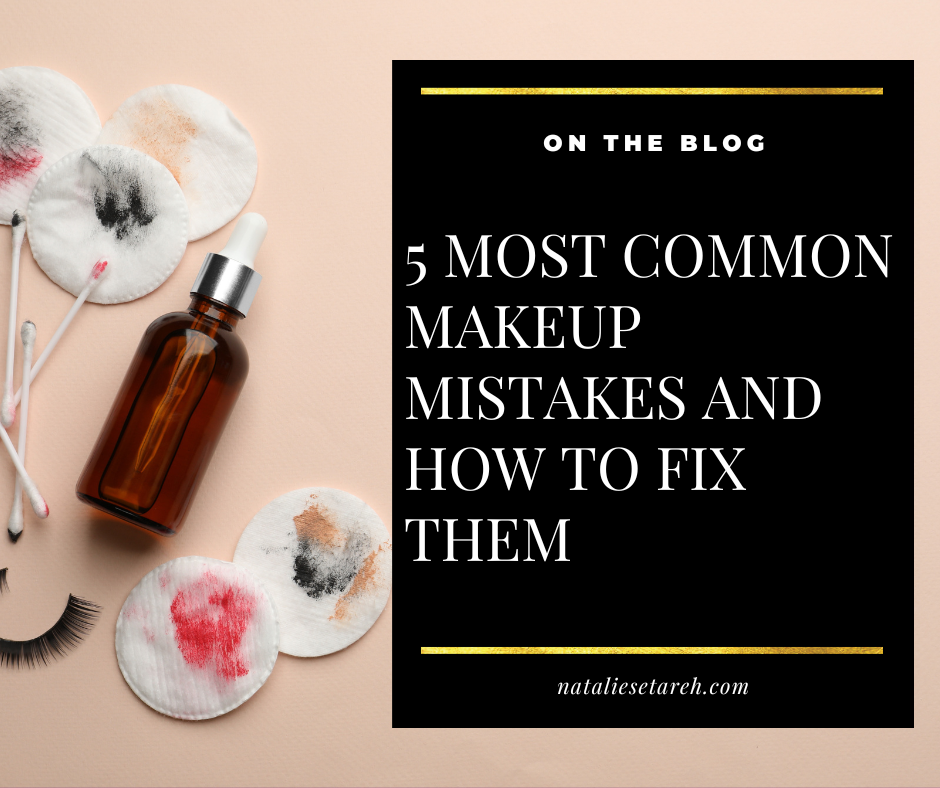
Makeup can be a great way to enhance your natural features and express your personal style.
However, it’s important to be aware of some of the most common makeup mistakes that can sabotage your results. In this blog post, we’ll discuss nine bad makeup habits to break up with, so you can achieve your best makeup look ever.
As a makeup artist and educator, I’m passionate about teaching people how to wear makeup in a way that enhances their natural features and makes them feel more confident. While I understand that everyone has different makeup habits, there are some techniques that may be working against you. That’s why I’m here to help guide you in the right direction, without any judgment or guilt.
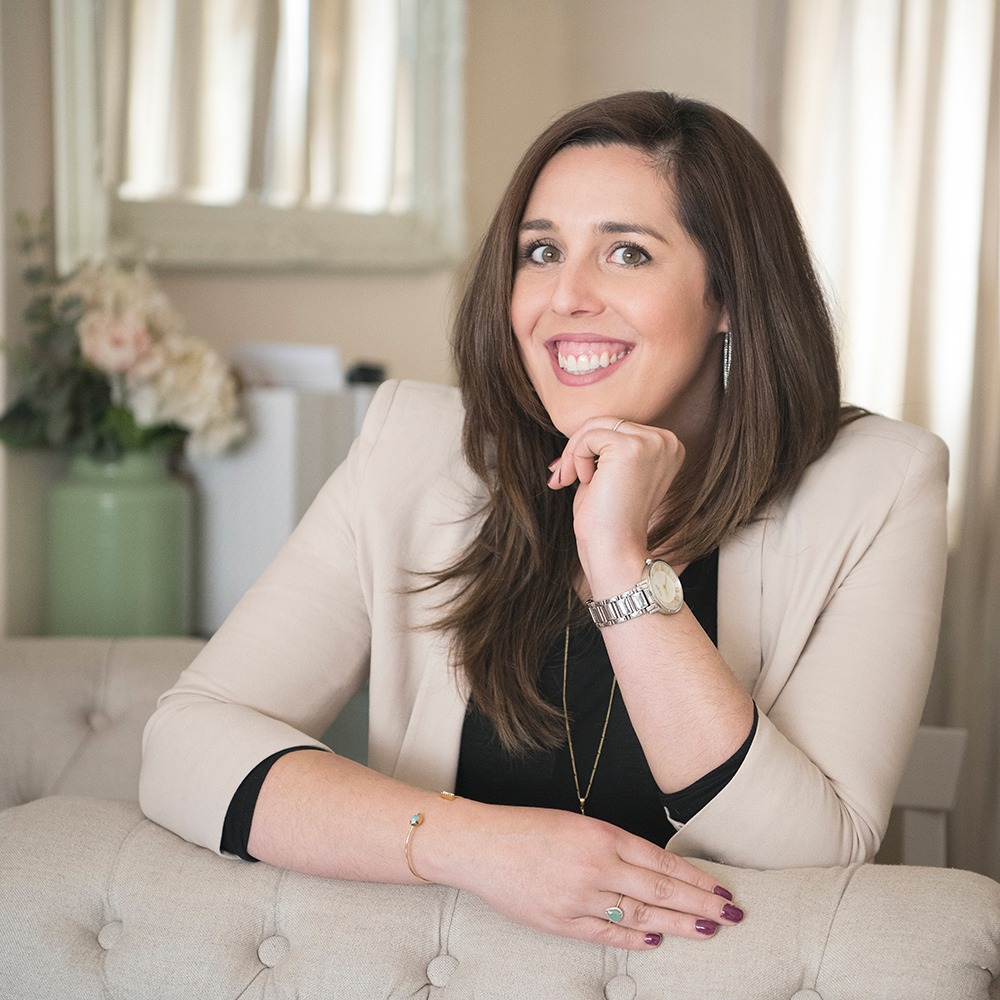
Here at nataliesetareh.com, I’ve created tons of educational resources on makeup, including my cosmetology-curriculum used book, Be Your Own Makeup Artist. My book is perfect for beginners or for those who are looking to restart their makeup game. I also offer 1:1 makeup coaching at Create Your Signature Look. No matter where you are on your makeup journey, I’m here to help you learn at your own pace and in your own time.
Okay, now let’s dive into some of the common makeup mistakes you might not even realize you’re making!
Common Makeup Mistakes and How to Fix Them
Bad Habit 1: Not washing your brushes and tools
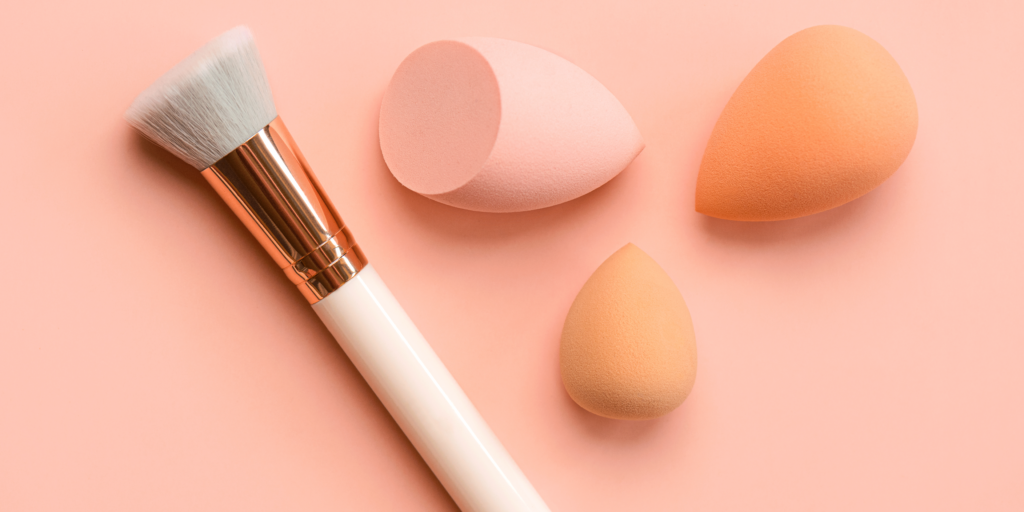
Your makeup brushes are like the tools of a painter. If you don’t take care of them, they’re not going to produce good results. When you use your brushes, you’re transferring natural oils, makeup residue, and even bacteria from your skin to the bristles. If you don’t wash your brushes regularly, this buildup can lead to breakouts, clogged pores, and even infections. This includes your pillowcases! You need to wash them regularly as part of your skincare routine.
Here are just some of the bacteria that can live on makeup brushes and skincare tools:
- E. coli
- Staphylococcus aureus
- Salmonella
- Pseudomonas aeruginosa
- Klebsiella pneumoniae
These bacteria can cause a variety of skin problems, including breakouts, infections, and allergic reactions.
PSA: If you don’t have my Makeup Sanitation Guide, grab it now. It’s a great reference checklist for all the things I do to keep my personal kit clean. I include a lot of the information in the post and even more inside the guide.
How often should you wash your makeup brushes?
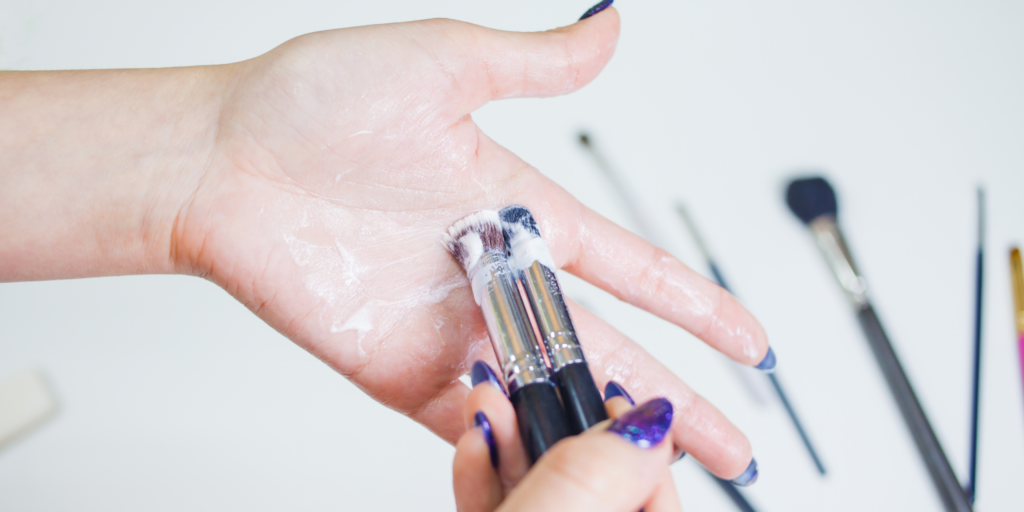
If you use your brushes every day or have oily skin and apply makeup daily, try to wash your makeup brushes at least once a week. My personal brush-washing day is always Sunday.
How to wash your makeup brushes
What about makeup sponges?
Beauty sponges should be replaced every 1-3 months, depending on how often you use them. If you start to notice that your sponge is getting moldy or smelly, it’s time to replace it. The good news is, most beauty sponges can be recycled!
This is my favorite sponge (and brush) cleanser.
Bad Habit 2: Sharing makeup
I have a seven-year-old daughter who is obsessed with makeup! I’ve even developed a series of makeup coloring books for her (lip art coloring book and eyeshadow looks coloring book). They are the perfect gift for kids who want to play with makeup… and whose parents don’t want to ‘clean up’ the makeup. Aside from teaching her how to hold brushes, blend makeup gently, and apply shimmery eyeshadow — the number one thing I teach her about makeup is hygiene. And for reference, she’s one of those kiddos who will touch her mouth to the water fountain faucet (gross) or share a milkshake with three or more of her friends (ew).
And yes, while I’m working on teaching her not to participate in these germy activities, I’m proud that she knows never to share her makeup with her friends… including her play makeup!
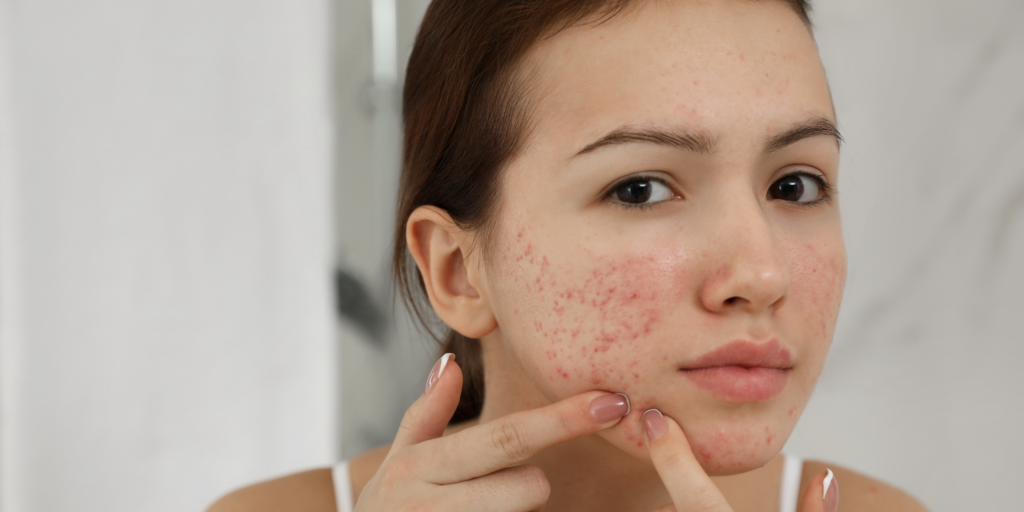
Even if you’re clean and your brushes are clean, the germs listed in Bad Habit #1 can easily be passed onto others. If you do find yourself in a situation where you need to share or borrow makeup, be sure to disinfect the product with 70% isopropyl alcohol before using it. (just know that this won’t work for wands that dip in and out of tubes, like mascara or lip gloss).
If you’re an aspiring makeup artist or a professional makeup artist…
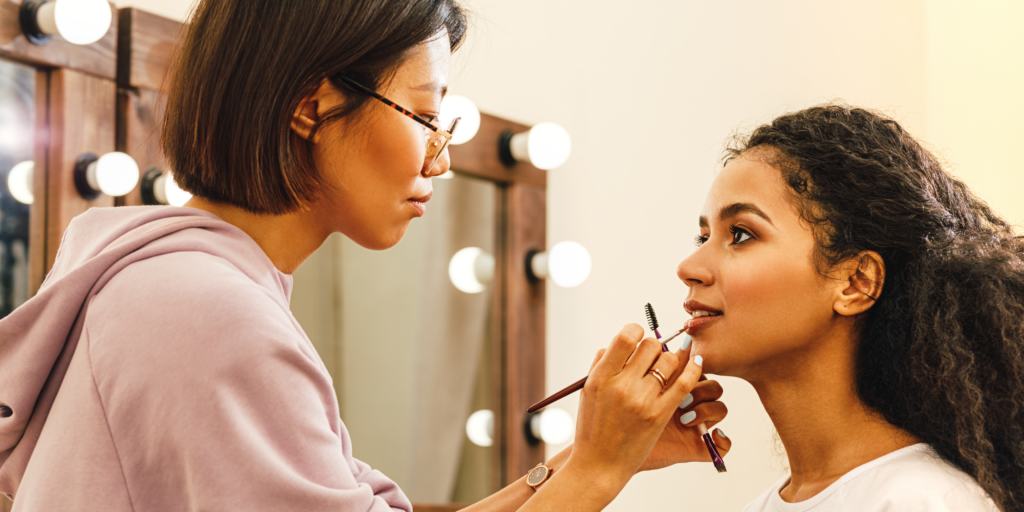
You already know that you have to clean and sanitize your brushes, tools, and makeup between each client. You cannot use dirty brushes on a client or a used makeup sponge. And you also know not to double-dip that mascara wand or liquid liner! There are industry standards for isopropyl and how to keep your kit clean and sanitized. If you are not familiar with how to clean and sanitize your professional kit, let’s see how we can work together. I’ll teach you everything you need to know to keep your reputation awesome and keep your clients safe!
Bad Habit 3: Over-applying makeup
I had a reader ask me years ago how to know when it’s too much makeup. You can read the entire post here.
Over-applying makeup can make you look unnatural and it can often feel (and look) cakey and heavy. But here’s the deal, there’s no such thing as too much makeup or too little makeup. The amount of makeup you wear is deeply personal to your style and preferences. Some people want to allow their natural beauty to shine through, while some people want to cover up their dark circles or dark spots. There are also those who love rocking an entire face. You have to figure out how to do you 🙂
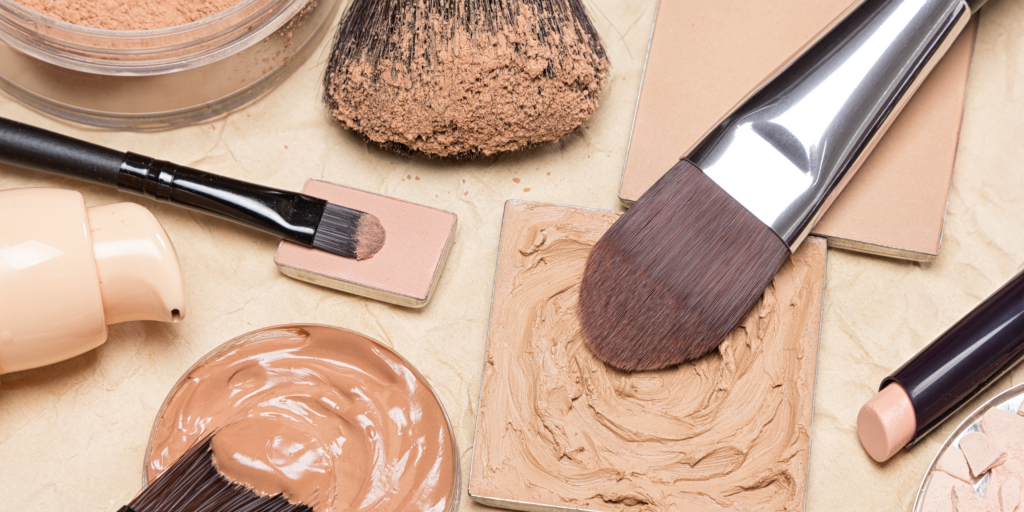
A lot of the fears of makeup clogging pores and irritating your skin aren’t necessarily because of wearing more makeup. It’s likely because you are using the wrong products or formulations for your skin type or using dirty makeup or brushes.
Improvements in makeup technology
Makeup technology has improved significantly over the years. Today, there are many high-quality makeup products available that can provide natural-looking coverage without clogging pores or irritating the skin.
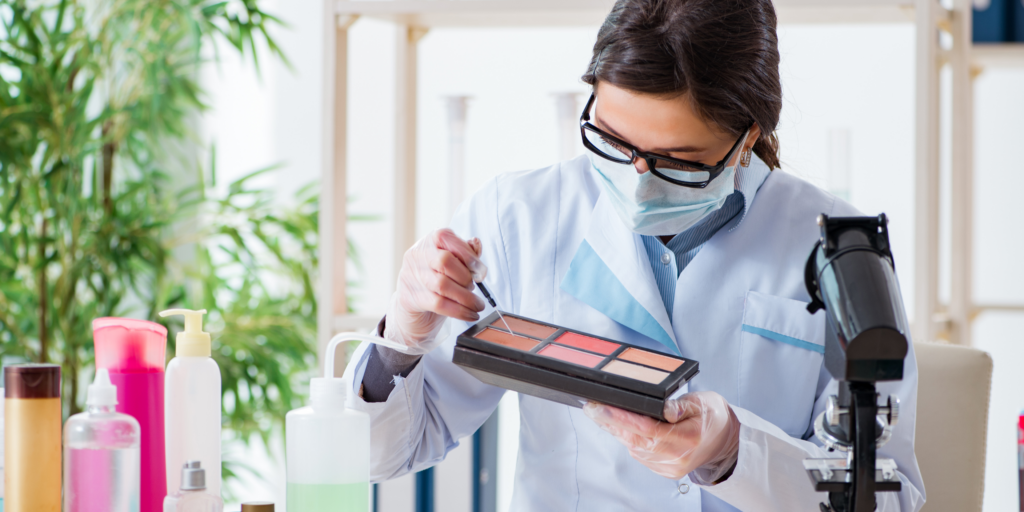
Some of the biggest advancements in makeup technology include:
- Lightweight foundations: Today’s foundations are much more lightweight and breathable than they were in the past. This means that you can achieve full coverage without feeling like you’re wearing a mask.
- HD-compatible makeup: HD-compatible makeup is designed to look natural on camera. This type of makeup is often used by celebrities and makeup artists, but it is also available to the general public.
- Long-wear makeup: Long-wear makeup is designed to stay in place all day long, even without touch-ups. This type of makeup is perfect for busy people who don’t have time to reapply their makeup throughout the day.
How makeup tutorials can lead to over-application
The real problem is that the beauty industry is great at convincing us we need to apply more products than we need in our day-to-day makeup application! Many people learn how to wear makeup from watching makeup tutorials on YouTube and social media. These tutorials are often created by influencers and content creators who need to use pro lighting (not natural lighting) and heavy makeup to look their best on camera. Read this post as to why online makeup tutorials don’t work >
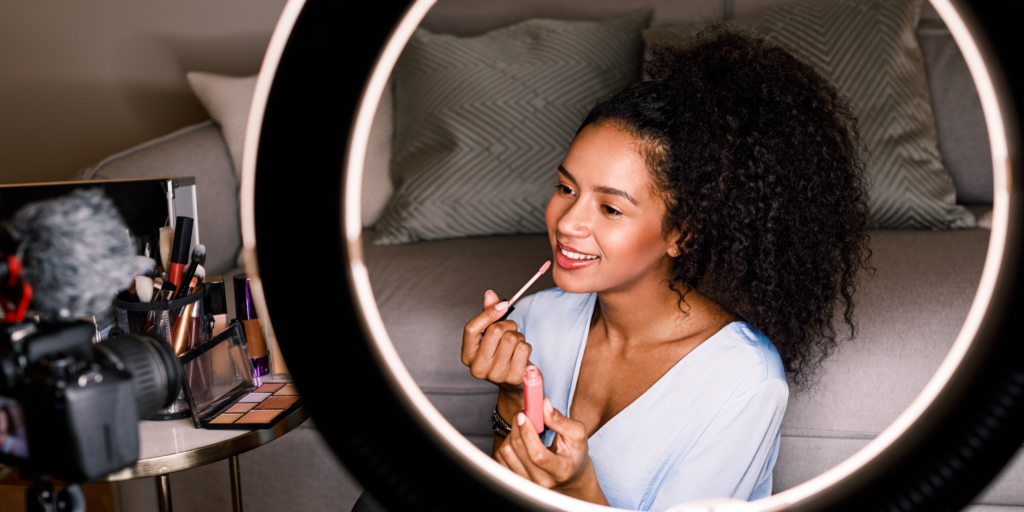
It is important to remember that these tutorials are not always realistic for everyday life or for achieving a natural look. Remember, the goal of these influencers is to sell products or build relationships with brands, so they may use more makeup than necessary. They are in the content-creation business, not the makeup education business.
A better alternative to makeup tutorials is to invest in makeup education.
A good makeup educator can teach you how to apply makeup in a way that enhances your natural features and looks good in real life. For example, I’m committed to teaching people how to wear makeup in a way that makes them feel their best and I don’t answer to beauty brands. If you’re ready to break up with over-applying makeup, or any of the other common makeup mistakes mentioned in this post, I can help. Here’s how:
- Makeup books, like mine! Or, check out my other highly recommended books here!
- Online courses. If you are new to makeup or you want to reset your relationship with makeup, take my course Learn Makeup in 5 Days, which will help teach you how to craft your unique makeup look and avoid a makeup “rookie mistake” or two.
- 1:1 coaching. I offer 1:1 coaching inside my Create Your Signature Makeup Look program.
Tips on how to apply makeup more naturally:
- Warm up your foundation on the back of your hand before applying.
- Start with a light layer of foundation and build up coverage (I demonstrate how to build your foundation inside of my Learn Makeup in 5 Days course).
- Use concealer sparingly or instead of foundation.
- Use a light hand (not too much pressure) when applying other makeup products.
- Concentrate a small amount of blush on the apples of your cheeks and blend up and out to avoid harsh lines.
- Start with a light layer of lipstick in the center of your lips instead of coating your entire lips in a cream color.
- Skip the false lashes. Grab your eyelash curler and spend a few extra minutes on your mascara.
- Avoid too much concealer in your under-eye area (there’s a great graphic in my book that shows this and explains why).
- Toss your clumpy mascara in the bin.
Just remember, the older we get, the less makeup we need! It’s about using less product but more strategically.
Bad Habit 4: Not removing makeup before bed
When you sleep, your skin repairs itself and produces new cells. Leaving your makeup on overnight can clog your pores and lead to breakouts. It can also damage your skin over time. And hello dirty pillowcases!
Here are some tips on how to remove your makeup gently and effectively:
- Use a gentle cleanser formulated for your skin type. If you don’t know your skin type, you can download my skin type guide or book a consultation with me.
- Start by removing your eye makeup. Use a cotton pad soaked in makeup remover to gently wipe away your eye shadow, eyeliner, and mascara.
- Rinse your face thoroughly with warm water.
- Pat your face dry with a clean towel.
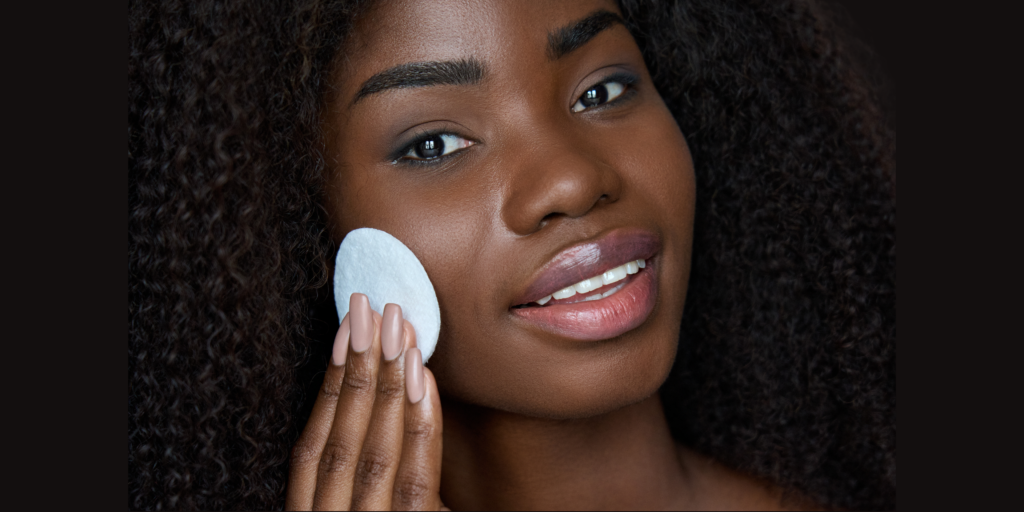
If you wear heavy makeup or waterproof makeup, especially waterproof mascara, you may need to use a double cleansing method. This involves using an oil-based cleanser followed by a water-based cleanser.
The oil-based cleanser will dissolve your makeup, while the water-based cleanser will remove any remaining dirt and oil. If you remember my interview with Kim Baker Beauty, she describes from an esthetician’s point of view why oil cleansing is her favorite beauty hack. You can listen to that interview here.
Here are some additional tips for removing makeup gently and effectively:
- Wash your hands thoroughly before and after removing your makeup.
- Avoid using harsh rubbing or scrubbing motions.
- Be sure to remove all of your makeup, even if you’re tired.
Taking care of your skin at night is one of the best things you can do for your overall complexion. By following these tips, you can remove your makeup gently and effectively, ensuring that your skin is clean and healthy.
Bad Habit 5: Applying makeup to naked skin
This habit is also in my post 4 Things A Makeup and a Makeup Artist Can’t Do for You. Applying makeup to naked skin is a common makeup habit because it’s nearly impossible to achieve a natural finish without first prepping your skin for makeup. When you apply makeup to naked skin, it’s more likely to settle into fine lines and wrinkles, and the pigments won’t blend as well.
For example, if you have dry skin and you skip skin prep, you’ll have dry patches come through in your makeup application. If you have oily skin, the makeup will literally melt off your face or look splotchy. It won’t matter how much powder or how much foundation you apply, the makeup will never wear nicely or comfortably.
Additionally, the pigments in makeup can irritate your skin, especially if you have sensitive skin. You’re far more likely to experience irritation and redness without a skin prep barrier to protect your skin from makeup.
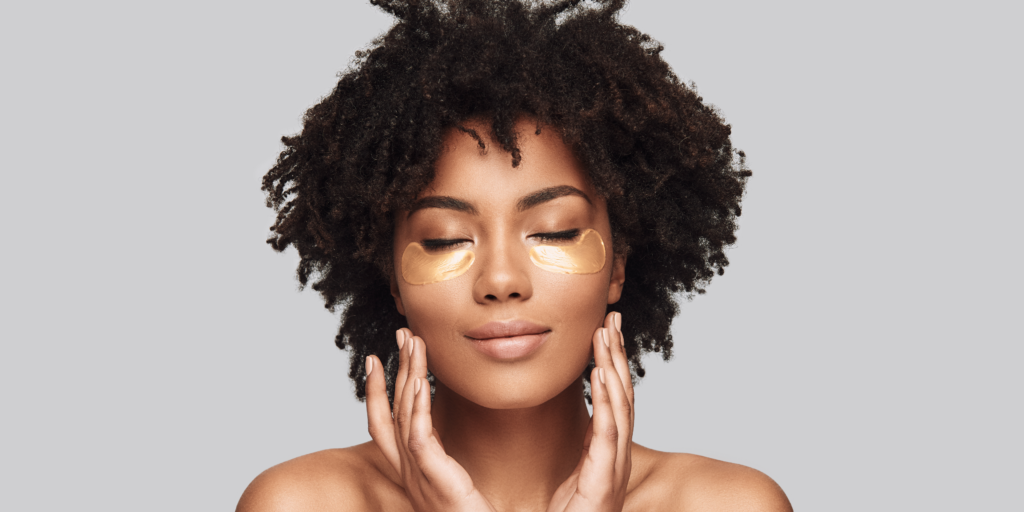
If you’re wondering what the difference is between your skincare routine and skin prep, I’ve written an extensive blog on this you can reference here. Just remember though, you always want to prep your skin before applying makeup. Not only does this help to create a smooth, even canvas for your makeup (yes, you can even skip the primer if you do this!), but it also helps protect your skin from the harsh ingredients in some makeup products.
How you prep your skin depends on your skin type! For a guide on what types of formulations work for you, grab a copy of my book, Be Your Own Makeup Artist — or you can download my free Skin Type Guide. It’s not as comprehensive as my book, but it’s a great DIY place to start.
Bottom Line: By prepping your skin before applying makeup, you can avoid some of the common makeup mistakes listed above and achieve a flawless, natural-looking finish.
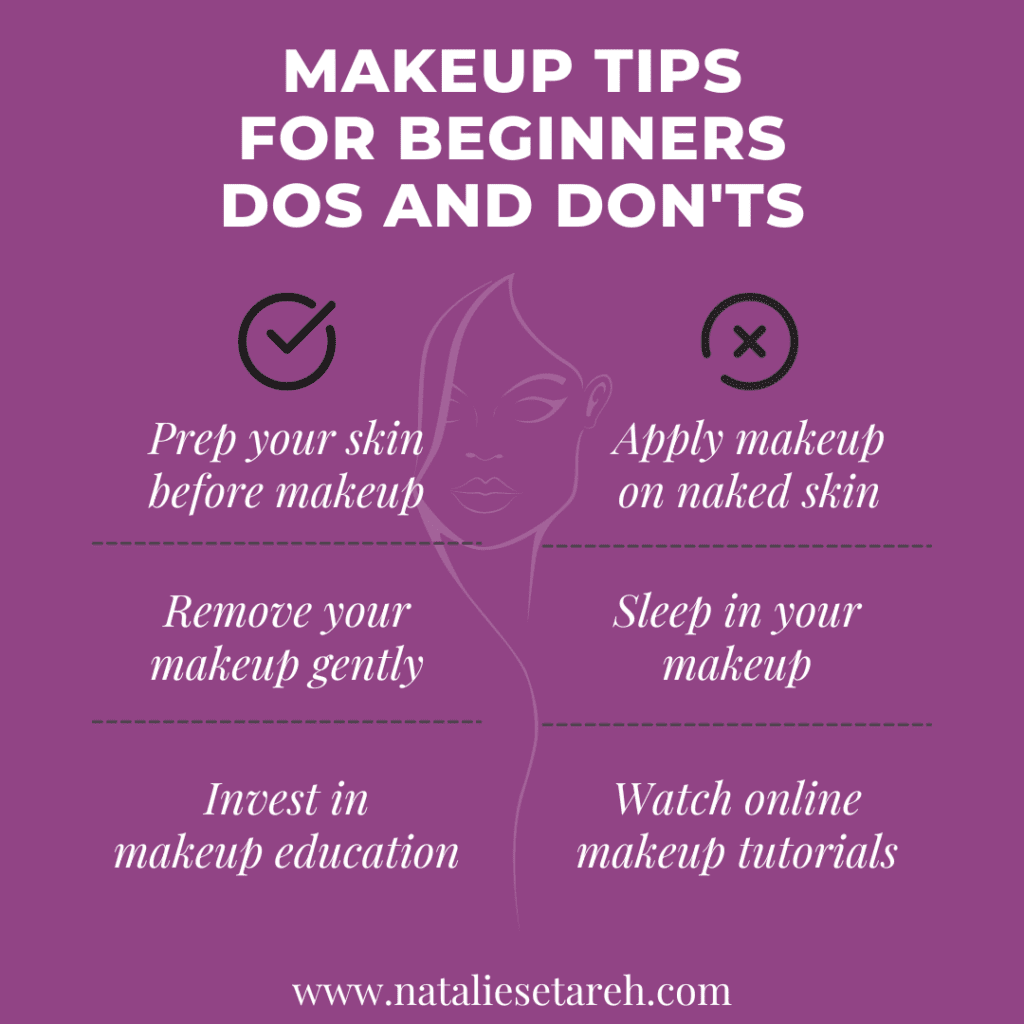
Conclusion
There are so many more common makeup mistakes I see on the regular that I’m not covering here, including:
- The Use and Misuse of Primer (check out this post on primer)
- Not Blending Your Makeup (I teach this inside of Learn Makeup in 5 Days)
- Heavy Handed Eyeliner (most people don’t even look their best in eyeliner!)
- Using the Wrong Foundation Shade (check out this post here on how to help you find the right shade)
Bad habits are hard to break and yes, it will take time and effort, but it’s worth it in the end. By following the tips in this blog post, you can avoid the most common makeup mistakes and achieve a flawless, natural-looking finish.
If you’re ready to learn makeup and be done with it, check out all the ways to learn makeup with me here:
Beauty is about perception, not about make-up. I think the beginning of all beauty is knowing and liking oneself. You can't put on make-up, or dress yourself, or do you hair with any sort of fun or joy if you're doing it from a position of correction.
kevyn aucoin
